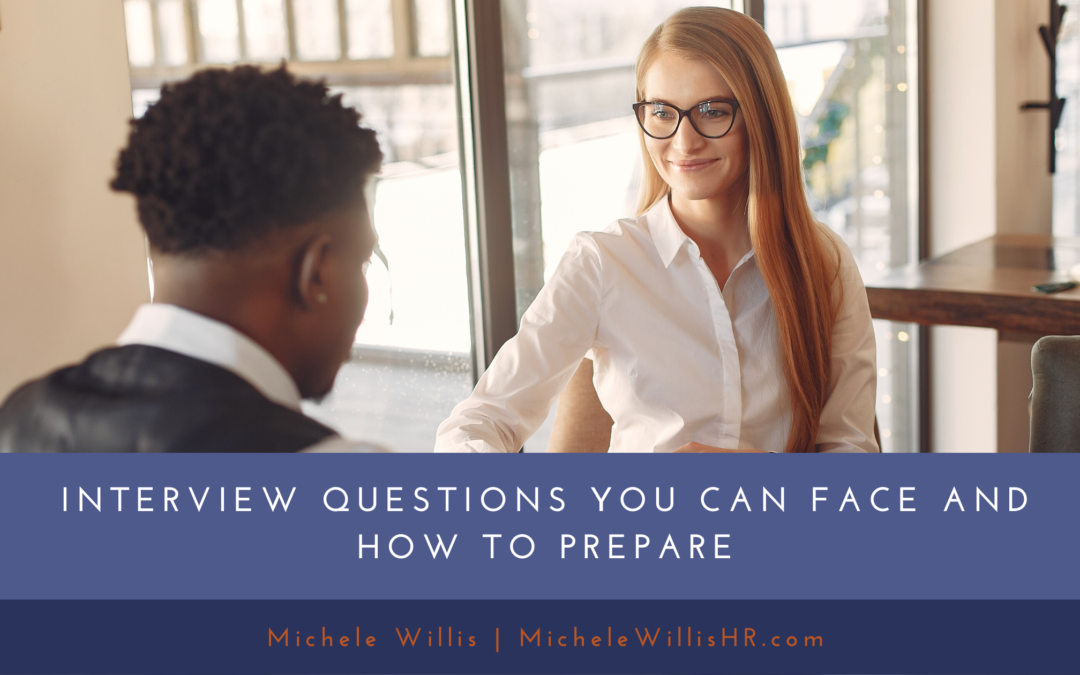Before heading off to your interview, you must always prepare. Nothing is more hurtful in an interview than not being able to answer a question with confidence and intelligence. Because of this, it’s imperative to know what the interviewer will ask you ahead of time and prepare yourself.
While it may feel like getting an interview can be far off in times like these, it’s important to always be prepared and ready to go so you can nail your next interview with confidence.
The C.A.R. method is a must to help a job seeker keep on track when communicating during the interview. The C.A.R method (Context, Action, & Results) helps people formulate their thoughts so the interviewer can better access knowledge, skills, and abilities.
Looking at it in practice, you want to think about the following:
C – Context/Challenge: What situation or challenge did you face and how did you contend with it? (You will want to provide a brief description of the situation you encountered and then the action you took to address it).
A – Action: What actual action did you use to contend with the situation? Be specific and go into detail describing steps or specifics you used to resolve the issue.
R – Result: What was the outcome or impact of your action? Did you complete a task, resolve an issue, improve sales? You want to emphasize the positive aspects of the actions you took to benefit the company’s success.
I recommend crafting at least five scenarios or ‘mini stories’ with this method and then practice so you have a strong impact during your interview. Having an interview should be more like having a conversation and storytelling is a very powerful way to get your point across. When you practice, you want to get to a point where sound like a real person; not robotic like you memorized information.
Keep in mind that your answers should sound natural and easy-going. This is why it’s a great idea to tape yourself answering how you responded. Do you sound confident and sure of yourself? Pay attention to your body language and your tone because these are the little things that interviewers pay attention to.
While it’s good to have your answers ready ahead of time, it’s even better to practice exactly how you say them. This is why it’s a great idea to tape yourself answering interview questions. It’s never a bad idea to review saying your answers more than once, twice, or even three times. By practicing your interview questions, it’ll give you the confidence you need to have a great interview. Pay attention to your body language and your tone because these are the little things that interviewers pay attention to.
Role-playing with someone you trust is also recommended. Now that we all have become accustomed to Zoom, go a step further and practice via Zoom. Get feedback so you can build your interview skills and then get hired.
These are some common interview questions you can expect to be asked when you interview, so prepare your answers.
Question #1: Tell Me About Yourself
This a popular question asked because the interviewer wants to know why you’d be the right person for the job. It can be pretty intimidating to answer on the spot, but the best way to answer is by not giving them an overwhelming, or even underwhelming, amount of personal information. Let them know some of your personal interests or experiences that don’t have to relate directly to work but truly showcase your personality to make the interview a little more interesting. How can you help the company solve their problems?
Question #2: What are your Strengths?
This is a question the interviewer will ask to see how well qualified you are for the job. In order to answer well enough for them to think you’re the right person for the job, talk about your strengths and attributes that will qualify you the most for that specific job. What strength do you have that is an asset to the position? Reviewing the job description can give you a hint of how to respond. Make sure to set yourself apart from other candidates and convey that your skills are what make you the best and most qualified candidate.
Question #3: What Is Your Greatest Weakness?
This is another intimidating question, but one that can make you easily stand out from other candidates. When explaining to an interviewer what your greatest weakness is, it’s important that your answer reflects the positive aspects of your skills and abilities as an employee. This means your “weaknesses” should actually be your strengths. For example, your weakness could be that you are too critical and tend to hold yourself to high standards throughout your career.
Question #4: Describe for me a time you had a conflict with a co-worker. How did you handle it?
The interviewer wants to know how you can foster healthy relationships. Demonstrate that you yourself can resolve the conflict peacefully and professionally without involving your boss.
Question #5: Why Should We Hire You?
You will want to relay that you stand out among the other applicants. Reflecting on the job description, what type of person does the company want to hire and how do you stand out? It is important that your answer relates to the job and the company. Be passionate in your response and don’t be shy about indicating you are the person that should be hired.
